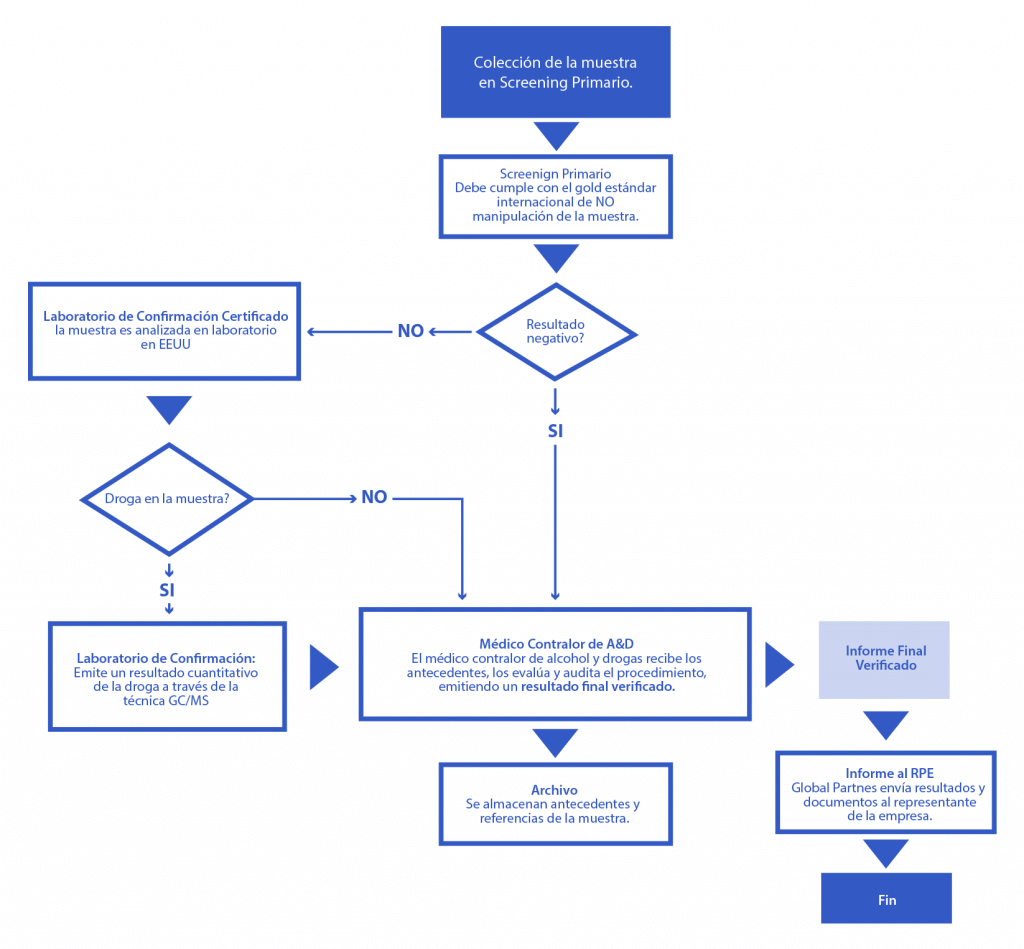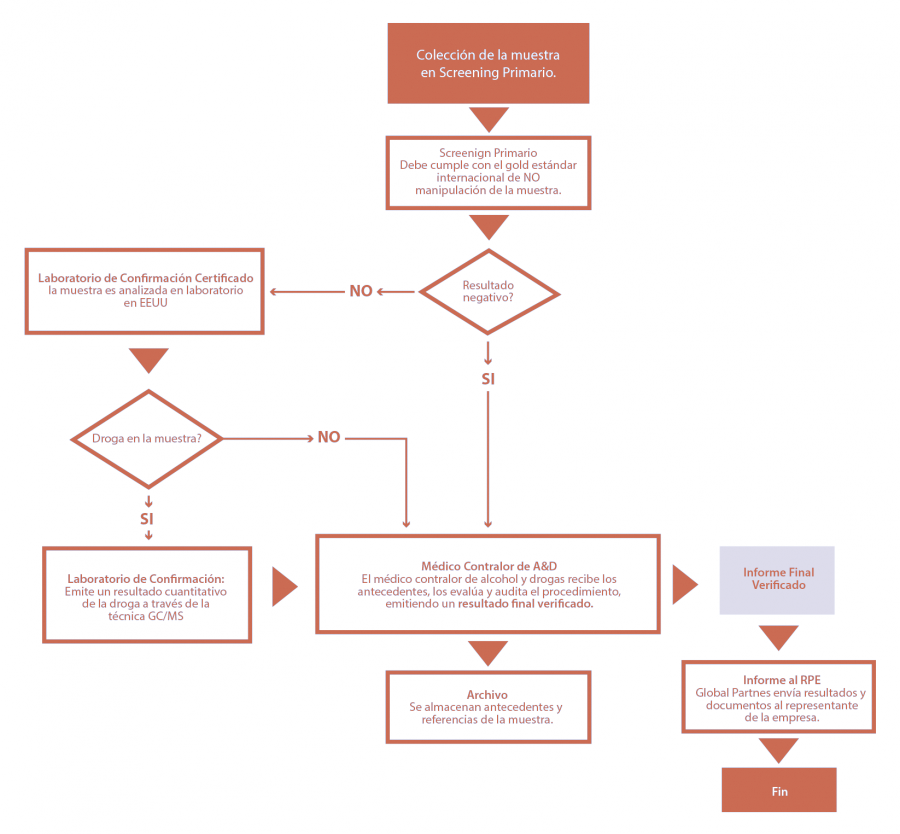Servicio de Testeo de A&D
certified according to ISO 9001:2015 and strict international protocols to ensure accurate and reliable results
Does your company test positive?
Our drug testing services employ cutting-edge technology to ensure reliable, accurate, private results.
Biometric identification
Immediate Results
High safety standards
Statistical Reports
TESTING
PRE-EMPLOYMENT
Pre-employment alcohol and drug testing measures the suitability of an applicant to perform the position for which they are applying, in an efficient, timely and safe way.
Our tests detect various drugs, such as cocaine, marijuana, methamphetamine, amphetamines, opiates, benzodiazepines and alcohol, and can be performed at our offices or the client's premises.
The procedure is carried out following the standards set by the Drug Free Workplace Program (DFWP), both in terms of testing protocols and the equipment’s quality and technical requirements.
OUR CUSTOMERS
TESTING
OCCUPATIONAL
Occupational testing is intended to be a deterrent and inhibitor of alcohol and drug consumption within the company or organization. It is carried out in accordance with the protocols set by Global Partners and the company’s A&D policy.
Global Partners offers this service following the standards set by the Drug Free Workplace Program (DFWP) both in terms of testing guidelines and the equipment’s quality and technical requirements.

FREQUENTLY ASKED QUESTIONS
Is it legal to test for drugs at work?
ORD. Nº3032/47 of the National Labor Directorate’s legal department, which regards the internal regulations of a company, states that:
- The obligations and prohibitions that justify drug and alcohol control must be contained in the company's Internal Regulations.
- The rules on drug and alcohol testing should specify the testing procedure used for drug and alcohol testing.
- All documentation that is made known to workers in relation to the drug and alcohol consumption control system must be written entirely in Spanish.
- It is necessary that any regulation on the control of drug use should list the types of drugs that will be subject to such control.
- The temporal and territorial extension of the obligations and prohibitions regarding drug consumption and alcohol abuse must be limited to working hours and company premises.
- Norms that regulate programs related to the control of drug and alcohol consumption must comply with proportionality requirements, i.e., they must be suitable, necessary, and proportional.
What does “informed consent for drug testing” mean?
It is the written consent given by the employee to perform a drug and or alcohol test. The results are then reported to his or her employers, in accordance with law N° 19.628.
This document should take several elements into account, such as:
- The employee’s identification data.
- Evidence of informed consent.
- Provide clear information to the individual about the test’s meaning, content and the drugs that will be analyzed.
- Sufficient information on the privacy and security of the sample collection process.
- Test results.
The collector performing the test must ensure the employee’s compliance with this protocol.
How should effective testing be performed?
- Randomized: The National Work Directorate states that testing must be done either at random or to the whole company. If the organization chooses a randomized approach, all workers should have the same chance of being chosen, reflecting an unbiased and reliable procedure.
- Unpredictable: Workers should be unable to predict or anticipate tests.
- Consistent and inhibitory or deterrent: International data and our own experience suggest that the minimum testing frequency needed to achieve reasonable standards should be once every four months.
- Representative: The number of tested workers should represent a relevant percentage of the company’s total workforce or site or branch employees. This allows the sample to be representative, so that the results are comparable over time.
- Confidential: For legal reasons and personal privacy, the results must be confidential.
- Randomized: The National Work Directorate states that testing must be done either at random or to the whole company. If the organization chooses a randomized approach, all workers should have the same chance of being chosen, reflecting an unbiased and reliable procedure.




































